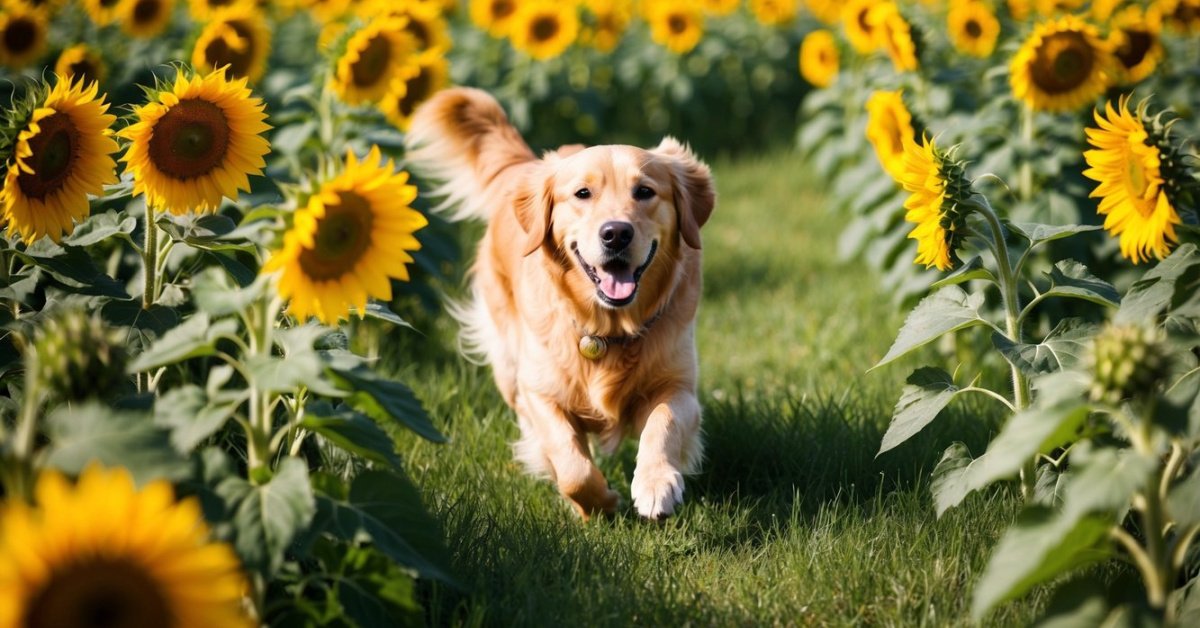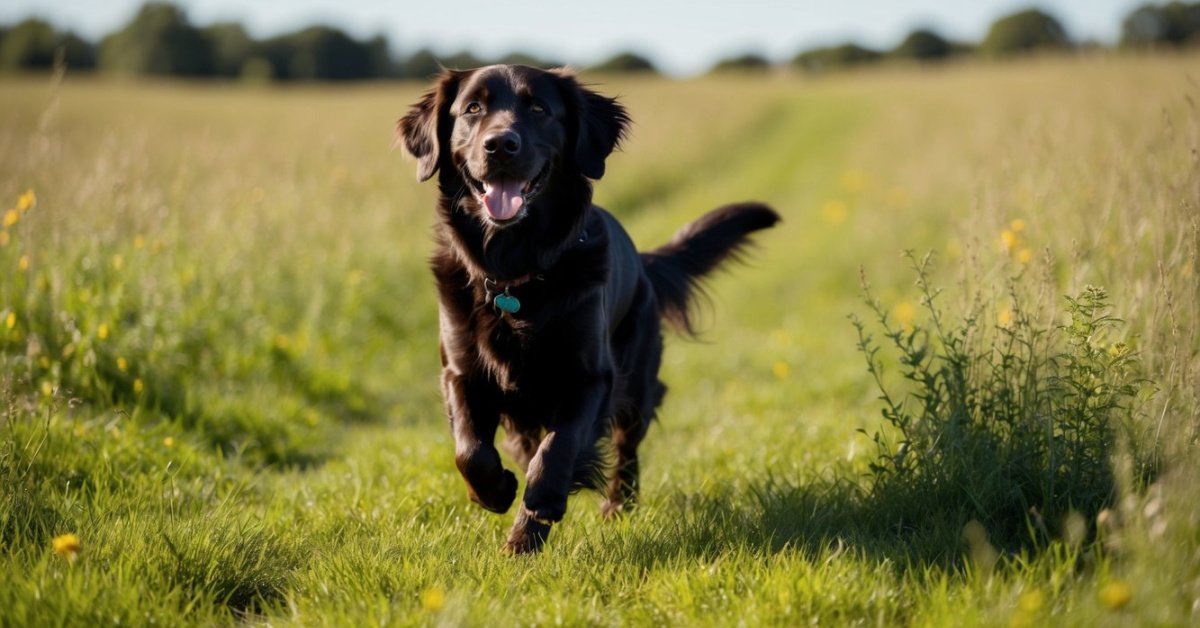Bringing a Golden Retriever puppy into your life is an exciting adventure filled with joy and challenges. These lovable furballs grow and change rapidly in their first year, and understanding their development timeline can make all the difference in raising a well-adjusted companion. From those adorable wobbly first steps to their playful antics, each stage comes with its own milestones.
Overview of Golden Retriever Puppy Development Timeline
Golden Retriever puppies undergo significant growth and development during their first year. This timeline consists of key stages that shape their physical, mental, and emotional well-being. Understanding these stages helps me provide the best care and training for my puppy.
Key Development Stages
- Neonatal Stage (0-2 Weeks)
Golden Retriever puppies rely entirely on their mother during this stage. They cannot hear, see, or regulate their body temperature. Their primary activities include sleeping and nursing.
- Transitional Stage (2-4 Weeks)
Puppies start to open their eyes and ears. They begin to explore their environment and interact with littermates. Social skills develop as they play with siblings.
- Socialization Stage (4-12 Weeks)
This crucial stage involves interacting with humans and other animals. Puppies learn bite inhibition, social cues, and basic commands. I expose my puppy to various sights, sounds, and experiences to build confidence.
- Juvenile Stage (3-6 Months)
Golden Retrievers experience a growth spurt. They become more active and curious, requiring consistent training. This is also the time for early obedience training to establish boundaries.
- Adolescent Stage (6-12 Months)
This stage brings hormonal changes and potential testing of boundaries. My puppy may exhibit stubborn behavior, so reinforcement training remains essential. Puppies learn valuable lessons about behavior and manners during this period.
- Young Adult Stage (1 Year and Beyond)
By the end of the first year, Golden Retrievers approach adulthood, transitioning into adult behavior. Continued training ensures my puppy develops into a well-mannered companion. Regular exercise and mental stimulation maintain their health and happiness.
Tracking these stages allows me to provide targeted training and care, ensuring my Golden Retriever grows into a balanced and joyful member of my family.
Newborn Stage (0-2 Weeks)
During the newborn stage, Golden Retriever puppies experience rapid physical and sensory development. This crucial period sets the foundation for their growth and future behaviors.
Physical Development
Puppies at this age primarily rely on their mother’s milk for nourishment, growing quickly in size and weight. Newborns typically weigh between 1 to 1.5 pounds. Their eyes and ears remain closed, limiting their movements to crawling and instinctive actions like nursing. Body temperature regulation is essential, as their ability to control heat is minimal. Regular monitoring of their weight helps ensure they receive adequate nutrition, as healthy weight gain indicates proper feeding.
Sensory Development
During the first two weeks, sensory development is minimal but significant. Puppies’ eyes and ears begin to open around 10 to 14 days, which enhances their ability to perceive their environment. Once vision develops, puppies start responding to light and movement. Their sense of smell is already active, allowing them to recognize their mother’s scent, which provides comfort. Although their hearing improves gradually, they remain largely reliant on tactile sensations and warmth from their mother and siblings.
Transitional Stage (2-4 Weeks)
During the transitional stage, Golden Retriever puppies begin to explore their surroundings and engage with their littermates. This period plays a crucial role in shaping their social behaviors and experiences.
Socialization Begins
Socialization starts in this phase. Puppies begin to interact with each other, learning vital social cues such as playfulness and submission. They’ll wrestle, chase, and even snuggle, helping them understand boundaries and appropriate behaviors within a pack. Exposure to various stimuli, including sounds and scents, gradually increases their comfort level with the world. Encouraging positive interactions among littermates fosters secure connections in future interactions with humans and other animals.

First Experiences
« Your Ultimate Guide to Finding Local Golden Retriever Events for Fun and Connection
Golden Retriever Adoption FAQs: Essential Tips for Future Pet Owners »
Puppies also encounter their first experiences during this stage. They’ll begin to open their eyes and ears, allowing them to see and hear their environment for the first time. Exploring small areas of their living space becomes possible, and they’ll show curiosity about their surroundings. Positive experiences, such as gentle handling by humans, promote trust and affection. Providing a safe and stimulating environment encourages further exploration while strengthening their developing personalities.
Early Puppy Stage (4-8 Weeks)
During the Early Puppy Stage, socialization and development take center stage as Golden Retriever puppies become more curious and interactive. This period significantly shapes their future behavior and temperament.
Weaning Process
At around 4 weeks, Golden Retriever puppies start the weaning process. This transition from their mother’s milk to solid food typically lasts until they are about 8 weeks old. During this time, I gradually introduce high-quality puppy food to support their growing nutritional needs. Puppies may initially nibble at the food but will learn to eat more consistently as they adjust. It’s essential to provide multiple small meals throughout the day, which helps their digestion and encourages healthy eating habits. Monitoring their weight and ensuring they stay on track for growth is also crucial.
Basic Training Introduction
Basic training begins around 4 weeks, focusing on establishing a foundation for good behavior. I introduce simple commands like “sit” and “come” through positive reinforcement techniques such as treats and praise. Puppies learn quickly during this phase, so short and engaging training sessions work best. Socializing them with various people and other pets enhances their adaptability and confidence. Exposure to different sights, sounds, and experiences fosters a well-rounded puppy, ready to embrace life with their new family.
Socialization Period (8-12 Weeks)
The socialization period is critical for Golden Retriever puppies. During these weeks, they learn vital social skills, shaping their behavior and emotional health.
Importance of Exposure
Exposure to various environments, people, and other animals builds a well-adjusted puppy. I introduce my puppy to different sounds, sights, and experiences, which boosts their confidence and reduces anxiety as they grow. Engaging them in positive encounters with diverse settings helps them adapt to new situations. For example, visiting a park, meeting other dogs, and experiencing different textures and surfaces enrich their development. Socializing during this period encourages friendly interactions, preventing fear or aggression later in life.
Puppy Vaccinations
Vaccinations during this stage are essential for protecting my puppy’s health. The veterinarian typically schedules the first set of vaccinations between 6 to 8 weeks, including distemper, parvovirus, and adenovirus. A follow-up vaccination occurs at 10 to 12 weeks for these core vaccinations. I stay on track with the vaccination schedule to ensure my puppy’s immunity and safety as they explore the world. Keeping vaccination records handy helps in monitoring their health and fulfilling any requirements for training classes or boarding facilities later on.
Adolescent Stage (3-6 Months)
During the adolescent stage, Golden Retriever puppies experience a surge in energy and an eagerness to explore. This period brings new challenges and opportunities for growth.
Energy Levels and Behavior
Energy levels peak during this stage, with puppies displaying heightened curiosity and playfulness. Engaging in daily activities, such as walks, play sessions, and socialization, becomes essential to channel this energy positively. Interaction with other dogs fosters essential social skills. Puppies often test boundaries and can exhibit impulsive behaviors, such as jumping or chewing. Monitoring their environment for safety and providing constructive outlets for their energy—like chew toys—help manage their exuberance.
Continued Training
Training remains crucial in this developmental phase. Consistent command practice reinforces learned behaviors while introducing new commands challenges their cognitive skills. Employing positive reinforcement techniques encourages obedience and motivation. Short, engaging training sessions, up to 10 minutes, maintain their attention and enthusiasm. Introducing distractions during training exercises enhances their focus and adaptability. A well-structured routine supports their behavioral growth and strengthens the bond between me and my puppy, ensuring a happier and well-mannered companion.

Young Adult Stage (6-12 Months)
During the Young Adult Stage, Golden Retrievers experience significant physical and behavioral changes. At this time, they transition from adolescent antics to more mature behaviors, which necessitates ongoing training and socialization.
Maturity Milestones
At 6-12 months, dogs reach several maturity milestones.
- Physical Growth: Body size stabilizes as they approach their adult size, typically weighing between 50 to 70 pounds for males and 45 to 60 pounds for females.
- Teething Completion: By around 6 months, most puppies have lost their baby teeth, making way for adult teeth.
- Behavioral Maturation: Social behaviors begin to stabilize; dogs show less impulsivity and start to exhibit more self-control in various situations.
- Hormonal Changes: Female dogs may experience their first heat cycle, while males may show increased interest in females and a tendency to mark territory.
Tracking these milestones helps ensure proper health and behavior management.
Common Challenges
Several challenges can arise during the Young Adult Stage.
- Boundary Testing: Dogs may test limits, exhibiting behaviors like jumping or ignoring commands.
- Increased Energy: A surge in energy often leads to hyperactivity, requiring consistent exercise and engagement.
- Socialization Gaps: Insufficient exposure to people, other animals, and environments during earlier stages can lead to anxiety or fearfulness.
- Behavioral Issues: Without continued training, issues like chewing or excessive barking can develop.
Addressing these challenges through patience, training, and positive reinforcement ensures a well-adjusted adult dog.

Conclusion
Watching a Golden Retriever puppy grow is one of the most rewarding experiences. Each stage brings its own set of joys and challenges that shape them into the loving companions we adore. By understanding their development timeline, I can provide the right care and training to help them thrive.
From their first wobbly steps to the playful antics of adolescence, every phase is a chance to bond and learn together. Embracing these moments and being patient through the ups and downs makes all the difference. I’m excited to continue this journey with my furry friend, knowing that every day is a new adventure in their growth and happiness.

















